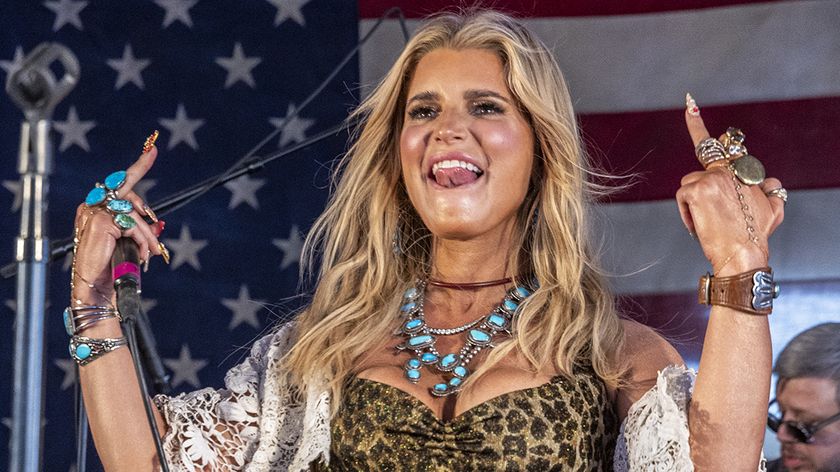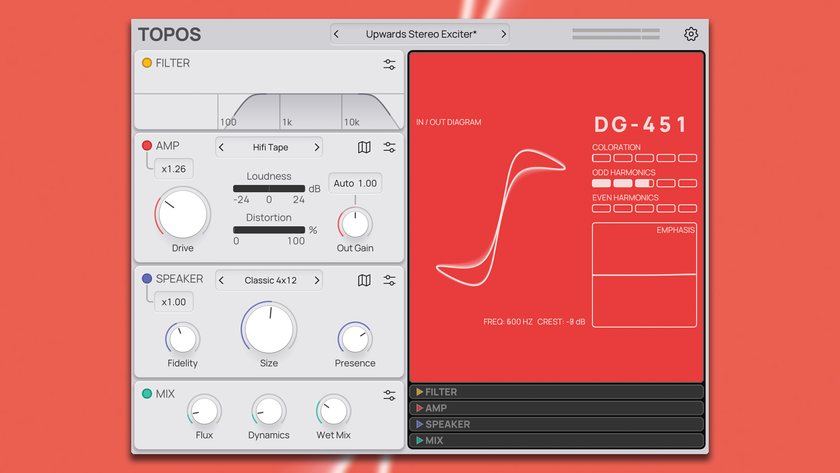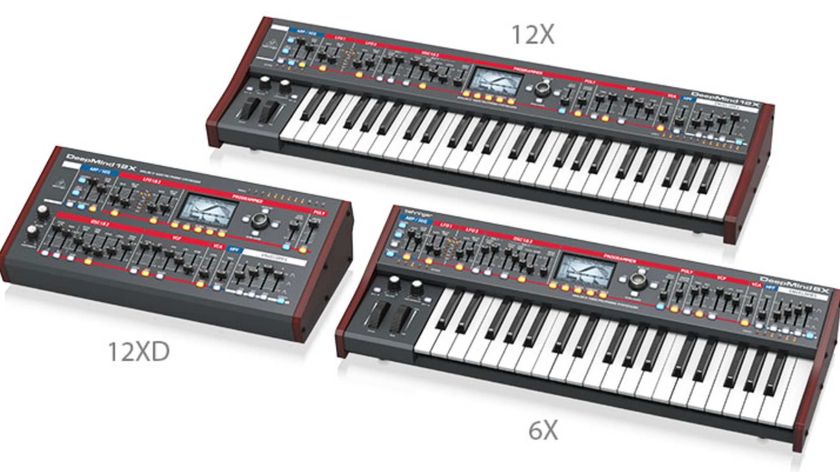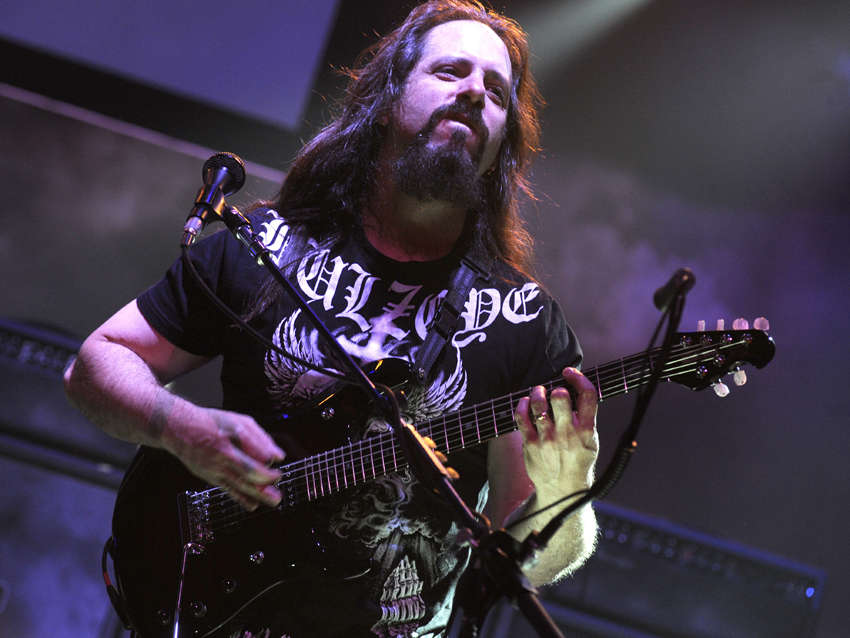
Dream Theater's John Petrucci admits that he chuckles inside when he reads the hyperbolic terms that have been applied to him over the years.
"'Guitar god,' 'shred monster,' 'axe genius'...I mean, I know people who are genuine 'guitar gods,' and believe me, they can play me under the table."
So how, then, would the Long Island musician prefer to be known? He thinks for a second and laughs. "'Pretty good picker'! I don't know. I just do what I do the best I can and hope people show up for the gigs and buy the CDs."
Currently, Petrucci - that pretty good picker - is on tour with the rest of Dream Theater (which also includes vocalist James LaBrie, drummer Mike Portnoy, bassist John Myung and keyboardist Jordan Rudess) in support of the band's 11th studio album, Black Clouds & Silver Linings.
Does the six-song album (yes, you read correctly: a couple of the tracks clock in at over 16 minutes each) contain moments of six-string derring-do? More than you can shake a whammy bar at. Petrucci winged most of his solos - the album was written and recorded in the studio - but those occasions when he was "somewhat perplexed at what to do next" seem to have added spark and spontaneity to his technical precision.
Last week, Petrucci checked in from Madrid, Spain to answer questions from MusicRadar readers - and one very important one of our own.
Audio
Download (right-click and Save As...)
Get the MusicRadar Newsletter
Want all the hottest music and gear news, reviews, deals, features and more, direct to your inbox? Sign up here.
Nacho says, I'm a 17-year-old from Argentina who's trying to decide what to do with my life. I've been playing instruments since I was 11, and I would really like to become a professional musician. I would like to ask John if he ever doubted becoming a musician and what he would do for a living if he hadn't become one?
"To answer the second part first, I have no idea. I'm kind of a one-trick pony. [laughs] Basically, I know how to play guitar. So that's a tough one to answer. But I never doubted myself.
"One of the keys to success is, you kind of have to have tunnel vision - you have to do everything you can to achieve what you want to do. I had that at an early age. I think it's important. You have to be extremely focused. Whether you want to go to the Olympics as a gymnast or have a successful rock band, it requires the same focus. You can't be distracted by doubt."
The next question comes from Ritchie (Blackmore) Randall -
"Nice!"
Ritchie wants to know what was the most important thing that helped you play clean and technical rhythms and solos?
"I would say the single most important thing is the use of a metronome when I practice. I learned that pretty young, when I about 15 or 16. I was starting to develop better technique; I was learning some Al Di Meola and Steve Morse songs, and my music teacher turned me on to practicing slowly with a metronome and gradually building up the speed."
Palaceguard has two questions: The first is, How much on average do you practice the guitar?
"I practice probably about two hours a day - two or three hours."
I assume there was a time when you practiced a lot more.
"I practice probably two hours a day - two or three hours. If we're in the studio and we're recording constantly, I'm kind of playing all day long."
"I did, yeah. I would practice six or more hours a day. It depends on what we're doing. If we're in the studio and we're writing and we're recording constantly, I'm kind of playing all day long."
Palaceguard also says, The Flaming Lips have announced that they're going to cover Pink Floyd's Dark Side Of The Moon. Do you wish you would have thought of it first?
"Actually, we did the entire album a few years ago. We have our own label, a side label, and we call it our Official Bootlegs. We release demos of albums, the makings-of and specific live shows, and any time we cover albums - we've covered Made In Japan, Dark Side Of The Moon, Master Of Puppets, The Number Of The Beast - you can buy all of those on our site. So we did think of it first."
They stole your idea.
"I guess they did!" [laughs]
Mescalito asks, How do you play The Glass Prison using the alternate picking technique? Wouldn't sweep picking be much easier?
"Yes, it's definitely easier to use a sweep picking technique for that particular part. It depends on the tempo we're playing it live. I find that alternate picking makes it sound a bit more powerful and driving, but it's definitely, definitely harder to do. If the band is playing it live and the tempo is too fast, I might opt to do sweep picking, for sure."
Universal Mind wants to know what equipment - amps, stomp boxes, rack effects - you use when practicing at home.
"It depends. Right now I'm using an Axe Effects Ultra by Fractal Audio, and it's pretty cool because I can just plug it into my recording system. All the sounds are built in. It's very convenient. But I have a bunch of [Mesa] Boogies all around the house, in different rooms. I usually don't practice with stomp boxes or effects; I just plug straight into the amp - or I play acoustically."
Derek says, I've noticed a strong shift towards metal on the past few Dream Theater albums as opposed to metal being just one of the many elements. I'm not complaining, but can we expect to hear a more experimental way of doing things in the future? Can we expect another concept album?
"Well, we like to constantly change and invent and think of every album as a new opportunity to do something different. So absolutely, people can expect more experimentation and changes.
"It's kind of what we're about. It's the spirit of progressive music in general - to not be stagnant. Obviously, you have to keep an identity, but at the same time you have to make subtle changes to keep it interesting, so from record to record there's a story to be told, as opposed to just a single story."
Julian Scott asks, If you had to go to Mars for good, which Dream Theater record would you bring along with you?
"It's the spirit of progressive music - to not be stagnant. You have to keep an identity, but at the same time you have to make subtle changes."
"Probably Scenes From A Memory. It means a lot to me because it's the first record I produced along with Mike; it's the first record that Rudess is on; it's a concept album. So yeah, it's kind of special to me."
Jeffrey Warzin wants to know the name of the program you use in the studio to record click tracks.
"In the past we used Digital Performer. But on the current album, on Black Clouds, we didn't do that; we just used the Pro Tools system to create a click track."
Ray asks, What's the best and worst part about being a father/family man in the music business?
"You could probably predict this one: It's spending so much time away from home. Trying to be a father and doing fatherly things when you're not home is very difficult. You do your best.
"My son had some music that he wanted to learn and I wasn't home - there were some complicated chords - so I recorded it on Logic and sent him an MP3 file; I wrote down the chords. You know, it would have been a lot easier if I was there 'cause I could've just showed it to him.
"You miss a lot of things - all their events and concerts, parent-teacher meetings, gymnastic meets and everything else. That's definitely the most difficult part."
Christopher has two questions: Do you have plans to release another solo album?
"Yeah, I absolutely will do another solo album. I'm not sure when exactly, but my last one was in 2005. A lot of people have been asking me about this. I'll definitely do another one. Absolutely."
Christopher also asks, What's the hardest Dream Theater song to play live?
"There's not a specific song that's hard; it's just parts in songs that are hard. Every once in a while something will come up in a solo I did that's difficult, or a passage. It's not like the entire song is hard, you know? Just sections here and there.
"The one in the song that somebody mentioned, The Glass Prison, that's pretty difficult, especially if the pace is right. It's fast - it's hard to keep it nice and clean and in time and articulate."
David asks, If the next edition of G3 takes place in 2010, would you like to participate?
"Oh, absolutely. Some of most fun I've had playing guitar live were on the many G3 tours I did. Whether they were with Joe [Satriani] or Steve Vai, or Joe and Paul Gilbert, or Joe and Eric Johnson, we just had a blast every time. I would not hesitate for a second to do another one."
Did playing with those guys kind of kick you in the butt? Did you sweat a little bit?
"Some of the most fun I've had playing guitar live were on the many G3 tours I did. I would not hesitate to do another one."
"Yeah. You know, first of all, you're up there with some guys who are your idols, who you've listened to and you worship, and all of a sudden you're up there with them and you're jamming.
"But the great thing is, all those guys are such cool people, highly professional; they're the kind of people that when you meet them, you're not disappointed. In fact, you have an even higher opinion of them. They're generous and personable, and really dedicated to music and playing the guitar. There's a positive spirit, especially when it comes to the jamming. It's a great musical environment."
And finally, MusicRadar would like you to weigh in on that all-important question: The Beatles or The Stones?
"The Beatles. I just related more to their songs. The Stones I never quite got for whatever reason. Maybe a song here and there, but I was never into them."
So just the overall musicality of The Beatles grabbed you?
"Yeah, exactly. The songs, the melodies, and whatever it is about songs - they reached me more. The Stones…they're a little too stripped-down rock 'n' roll for me, you know?"
Joe is a freelance journalist who has, over the past few decades, interviewed hundreds of guitarists for Guitar World, Guitar Player, MusicRadar and Classic Rock. He is also a former editor of Guitar World, contributing writer for Guitar Aficionado and VP of A&R for Island Records. He’s an enthusiastic guitarist, but he’s nowhere near the likes of the people he interviews. Surprisingly, his skills are more suited to the drums. If you need a drummer for your Beatles tribute band, look him up.
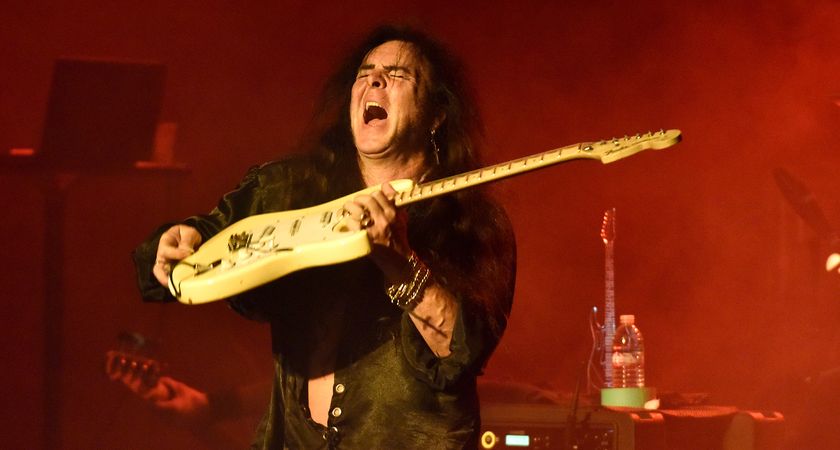
“Those arpeggios... That was the sickest thing I ever heard”: Yngwie Malmsteen on why guitarists should take inspiration from players of other instruments if they want to develop their own style
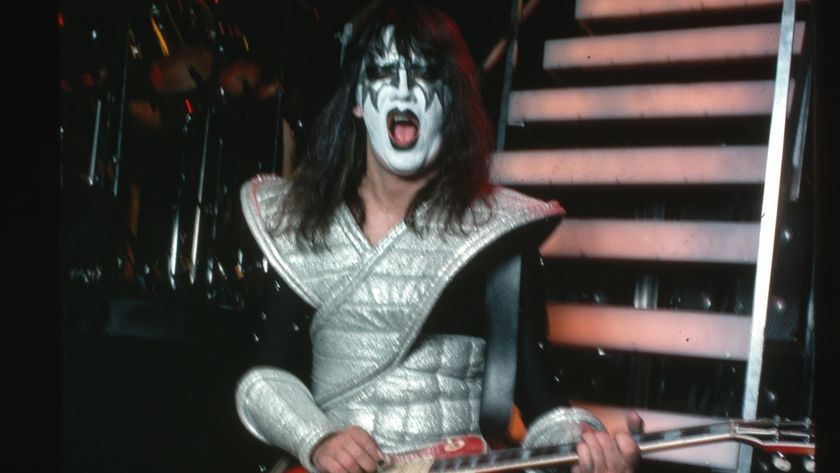
“I used a flange on the main riff and a wah-wah on the solo. I just said, ‘Hit the record button and I’ll let it rip!’”: Kiss legend Ace Frehley on his greatest cult classic song


